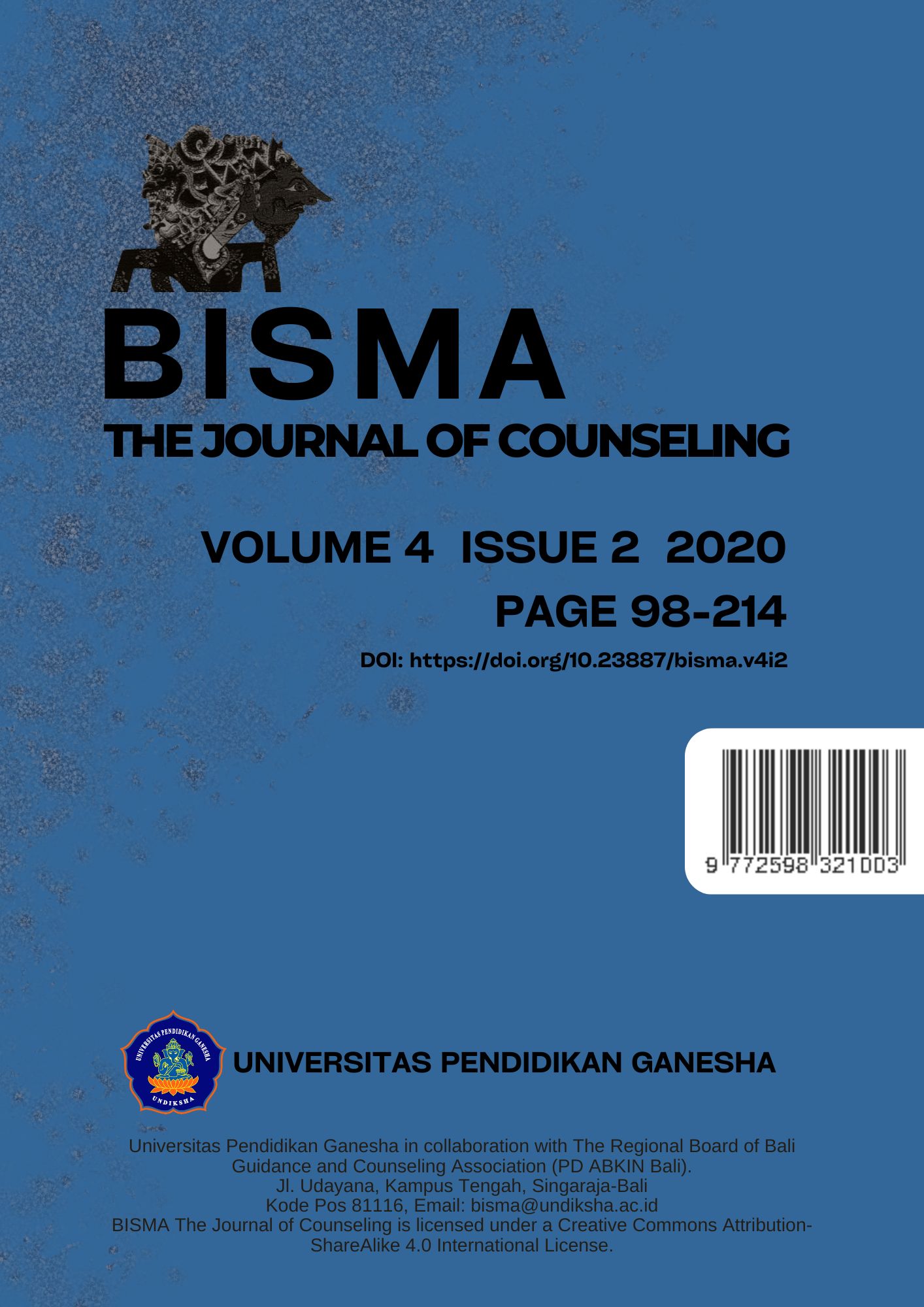Development of Character Assessment Instruments for Student
DOI:
https://doi.org/10.23887/bisma.v4i2.27922Keywords:
Instrument Development, Character Assessment, Research and DevelomepmentAbstract
This study aims to develop instruments for evaluating the character of Vocational High School students as well as knowing the validity of the instrument items, and the instrument reliability of the experts and practitioners. The type of research used is research and development (R&D), the research model used is Four-D (4D). The 4D model consists of four stages of research namely define, design, develop, and disseminate. Analysis of the data used is to test the validity of manual book product content with the Lawshe CVR and CVI formulas. Tests carried out by 5 experts or experts who are competent in the field of Counseling and Psychological Guidance. The results of the study based on content validity analysis are the CVR values per item obtained between +1 to 0 (CVR> 0). Furthermore, the results of the Lawshe CVI analysis obtained a score of 0.97 greater than 0 (0.97> 0). Based on the analysis of these data means the value of the validity of the instrument content is high and for the reliability results obtained at 0.78> 0.60 thus all items of the questionnaire are declared reliableReferences
A, Doni Koesoema. 2007. Pendidikan Karakter: Mendidik Anak di Zaman Global. Jakarta: Grasindo.
Abu Ahmadi dan Nur Uhbiyati, Ilmu Pendidikan Cetakan ke II, (Jakarta: PT Rineka Cipta, 2006)
Abdul Majid, Dian Andayani. 2011. Pendidikan Karakter Prespektif Islam.Bandung: Remaja Rosdakarya.
Alim, Muhammad, 2011. Pendidikan Agama Islam (Upaya Pembentukan Pemikiran dan Kepribadian Muslim). Bandung: PT. Remaja Rosdakarya
Arikunto, Suharsimi. 2010. Prosedur Penelitian Suatu pendekatan Praktek. Jakarta: Rineka Cipta
Davidson, Matthew; Lickona, Thomas; Khmelkov, Vladimir. 2007. “Smart &
GoodSchools:A New Paradigm for High School Character Education”. http://www2.cortland.edu/dotAsset/255920.pdf (Diunduh 12 April 2020)
Herry,S.E, M.Si. (2012).Analisis Laporan Keuangan.Jakarta: PTBumi Aksara.
Kemendikbud. 2014. Permendikbud No 111 Tahun 2014 tentang Bimbingan Konseling. Jakarta: Kementrian Pendidikan dan Kebudayaan
Lawshe, C. H. (1975). a Quantitative Approach To Content Validity. Personnel Psychology, 28(4), 563–575. https://doi.org/10.1111/j.1744-6570.1975.tb01393.x
Lickona, Thomas. 1991. Mendidik Untuk Membentuk Karakter: Bagaimana Sekolah Dapat Memberikan Pendidikan tentang Sikap Hormat dan Bertanggungjawab. Terjemahan oleh Juma Abdu Wamaungo. 2013. Jakarta: PT Bumi Aksara.
Rahayulis, "Ilmu Pendidikan Islam", (Jakarta : Kalam Mulia Group, 2012, Cet.9)
Samani, Muchlas, Hariyanto. 2011. Konsep dan Model Pendidikan Karakter.Bandung Remaja Rosdakarya
Thiagarajan, S., Semmel, D. S & Semmel, M. I. 1974. Instructional Development for Training Teachers of Expectional Children. Minneapolis, Minnesota: Leadership Training Institute/Special Education, University of Minnesota
Undang Undang Nomor 20 Tahun 2003 tentang Sistem Pendidikan Nasionl. Jakarta: Depdiknas.
Zubaedi, "Desain Pendidikan Karakter", (Jakarta : Kencana Prenada Media Group,2012,Cet.2)









